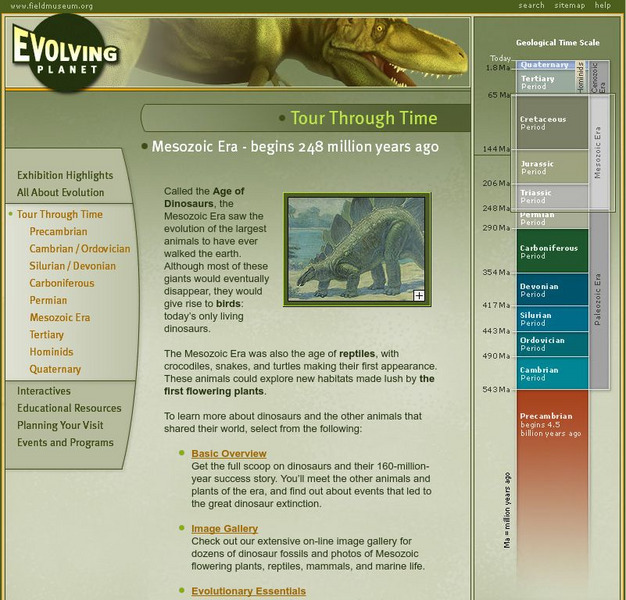Smithsonian Institution
National Museum of Natural History: American Mammals: Olympic Marmot
Olympic Marmots are highly social, living in groups made up of an adult male, one or more adult females, two-year-olds, yearlings, and young. Their diet consists of grasses and sedges, with flowering plants in season. Learn more about...
Other
Hibiscus
A brief overview of the hibiscus flower which covers why it is popular, where it originated, and what insects enjoy it along with humans. There is also a beautiful picture of the Hula Girl Hibiscus species.
The Field Museum
Field Museum: Exhibits: Evolving Planet: Mesozoic Era
In this effective exhibit, you will meet the dinosaurs and other plant and animals of Mesozoic Era. Observe photos of flowering plants, reptiles, mammals and marine life. Listen to interesting video interviews with scientists who study...
BiologyWise
Biology Wise: Monocot vs. Dicot
One way plants have been classified has been based on the number of cotyledons in the seeds. The differences between monocots and dicots are listed along with some helpful facts.
Other
Ontario Council for Technology Education: Sensory Garden Design [Pdf]
In this project, young scholars will design a sensory garden. The area to be designed is for a flower bed 3' wide, 5' long and 3' high. The design must be wheelchair-accessible from all sides. Students will research the different sensory...
Curated OER
Science Kids: Science Images: Daisy
This extreme close up photo of a daisy gives a detailed view of the beautiful flower, with its delicate white petals fanning out from the center.
Curated OER
Eternal Egypt: Icon of Saint Stephan
This icon of Saint Stephan is drawn on a rectangular wooden panel. The picture is surrounded by a frame of plants with yellow flowers and white leaves.
Curated OER
Eternal Egypt: Statue of Recumbent Hippopotamus
Statue of recumbent hippopotamus, the body is made of blue glazed faience and is adorned with nice drawings of aquatic plants showing flowers and foliage.





